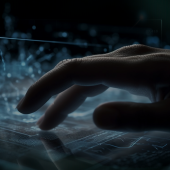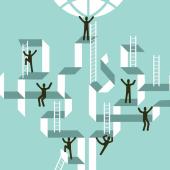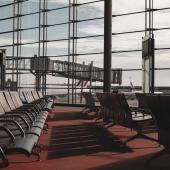Work After COVID-19
To be blunt, COVID-19 has permanently scarred the way we work. In order to challenge or substantiate this, we did a series of interviews with organizational executives, in HR and other areas, executive coaches, organizational consultants, and psychologists regarding the impact of the pandemic on the present and the future of work.
The hope is that these interviews will provide an invaluable understanding of the impact Covid-19 crisis has had on organizational wellbeing. The intention is for this information to support developing corporate cultural systems for sustaining the performance and wellbeing of people at work in the post-pandemic context. Below are the questions and the answers gleaned.
How has your organization adapted to the coronavirus crisis?
From the onset, this virus has been a threat not only to physical health but also to mental health. This has had a direct impact on performance as well as organizational culture. From the interview details below the overall emotional balance and normally healthy social interaction as well as the flow of information at work has been impaired. But some of the changes have been for the better.
Many people actually now prefer working from home. This of course is going to make the return to the office highly complex. Microsoft has confirmed to all employees that they will be able to work from home permanently if they prefer. But it seems many will return to the office.
One HR professional offered a joke. And so the HR manager tells Pete: "So Pete, post-COVID we can offer you two work options, A or B. A: You can continue to work from home under the same circumstances, or B: …" Pete interrupts: "B! I want B, whatever B is!”
Can organizational interventions around personal, professional, social, and cultural wellbeing offer employees relief?
Depending on who you speak to, wellness initiatives have had a different impact. HR professionals, coaches, and consulting experts argue that recent wellness interventions have offered measurable benefits. When speaking to frontline employees the opposite seems to be true. This also includes the experience of executives.
Groups have been challenged in terms of task and project delivery. This has been shown to be directly associated with work deliverables, wellbeing, and also financial security.
Were HR professionals prepared to face this crisis?
Organizational and individual support has been shown to offer benefits but in no way have people been able to work or function as they did previously. HR has done much to ensure that the relevant information is easily available. And it seems most employees suffering distress were supported. But all too often the problems were too large to manage and many could not adapt to these new challenges.
To what extent has this disrupted the functioning of your organizational culture?
Team meetings and conferences had to change dramatically in a way that reduced interaction quality. This influenced business practices and meetings have been reorganized. Online meetings have been stressful causing lowered trust and performance with increased overall fear of the unknown dynamics.
One HRD shared “We had to adapt to the new situation quickly and expansively. We had to re-organize all resources and set up new platforms for associating project deliverables with HR availability. We needed to ensure data was available online in a timely manner and that good ideas, materials and excellent initiatives were shared and also sustained. A key concern was psychological safety, which is something we are still struggling with.”
Now that the confinement is over, how do you see your organization and profession in the future?
One lawyer said: "In our organization, many are experiencing that virtual meetings are very much appreciated in terms of logistics, however, they do not seem to carry the same gravitas. The pandemic has changed the world or work for good – or bad.”
It seems there will be an increased demand for wellness services, especially given physical stress due to too much time sitting and other ergonomic concerns. Psycho-social concerns need to be addressed if business as usual is required. The most recent data in our company has shown us that balancing work and life is possible, but unlikely, as engaging people to be motivated to test out new working practices is difficult.
People will struggle to return to the office in two ways. Some won’t want to return to an office, but will continue to suffer the current impact on their personal and domestic wellbeing. And those who do return may have some of their team still working from home, causing a new dimension of social stress.
We are very grateful for this important commitment from all interviewed to strive to find solutions. One HRD said: “In the year 2000 we expected Y2K to change the world of work forever, but it seems that this prophecy has turned out to be true in 2020."
We wish everyone patience and a positive perspective in fixing the fallout caused by this pandemic. As Freddie Mercury declared, “The show must go on.”
We are very grateful to all the executives, psychologists, and coaches for sharing their insights in this series of interviews.






